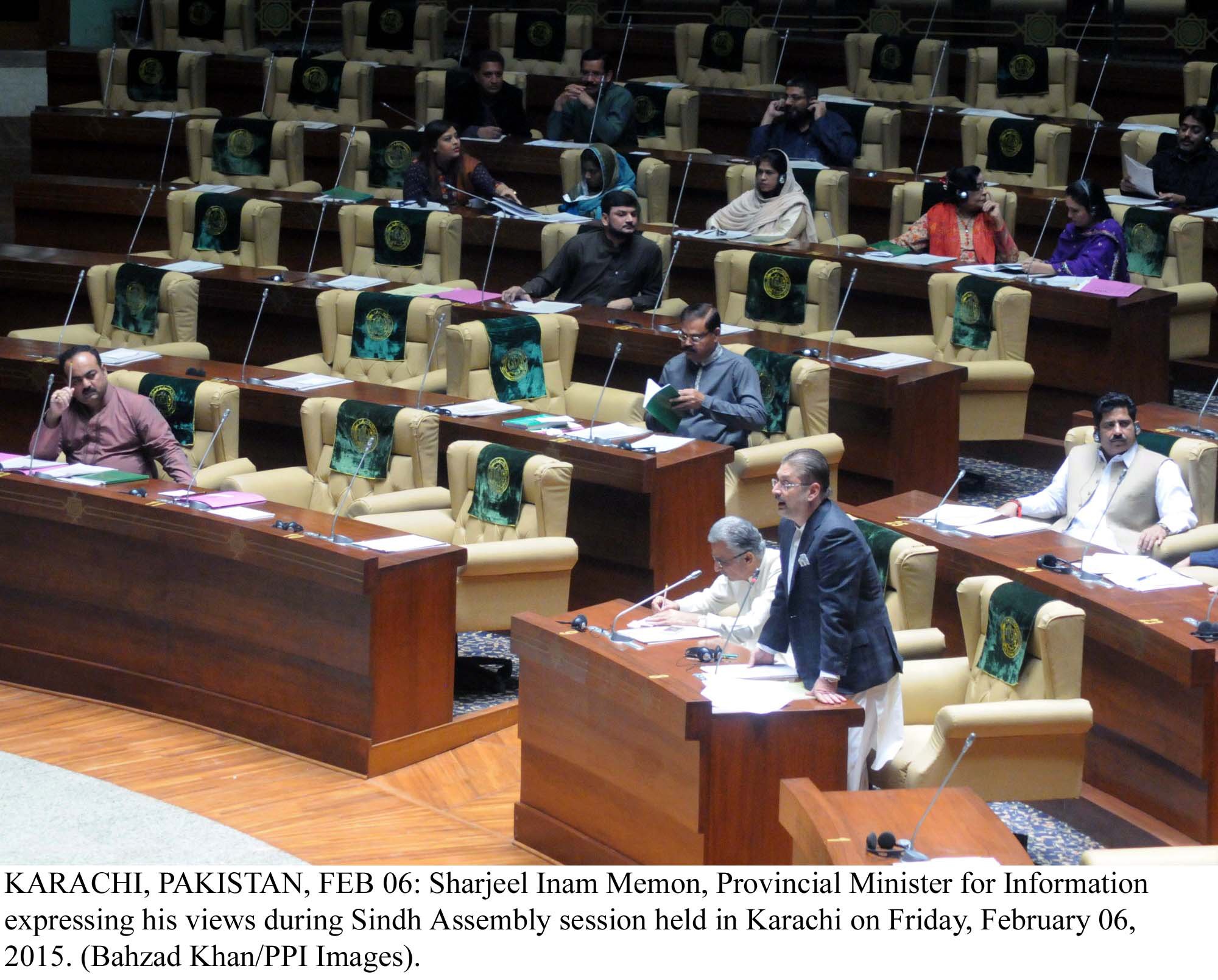
The Sindh Differently-Abled Persons (Employment, Rehabilitation and Welfare) Bill, 2014, was passed unanimously by the lawmakers to regulate matters relating to employment, rehabilitation and welfare of differently-abled persons.
"We want to give a positive message and should avoid discrimination towards people with disabilities by not calling them 'disabled' or 'special persons'," said Pakistan Peoples Party MPA Murad Ali Shah. "They are differently-abled people and have proved that in every field." Muttahida Qaumi Movement's Sumeta Afzal Syed also suggested using a word other than 'disabled people'.

The bill calls for the government to establish a council, called 'The Council for the Rehabilitation of Differently-Abled Persons' comprising 14 members with the social welfare department secretary as its chairperson.
This council will execute the policies made by the government for the employment, rehabilitation and welfare of differently-abled persons, and undertake appropriate projects for them. "It will be the council's responsibility to conduct surveys of differently-abled persons who want to go through rehabilitation," said the bill. "The council will also conduct their medical examination and provide treatment to the persons registered with it."
Before the bill was passed unanimously, the lawmakers belonging to the opposition parties insisted on referring it to a standing committee. However, parliamentary affairs minister Dr Sikandar Mandhro called the bill comprehensive and extraordinary as it was drafted after consultation with various political parties, constitutional experts and civil society organisations.
Admission and health insurance
According to the bill, differently-abled persons will receive full concession in admission fee and 70% in the tuition fee in public institutions, along with reserved seats. "Health insurance and free treatment will be provided in hospitals and dispensaries run under the administrative control of the local government," stated the bill, adding that social security grants will be given every month to needy persons, with special grant for their children's weddings. There is also a provision in the bill to give interest-free loans to these persons to set up small businesses, along with concessions when they receive government-allotted plots to build houses.
2% job quota
The bill also makes it mandatory for all government, commercial and industrial establishment to have no less than two per cent of their total employees to be differently abled. "The differently-abled persons employed against any post shall be entitled to the terms and conditions that are not less favourable than those of other people," said the bill.
Any organisation that does not satisfy the job quota will have to pay into the differently-abled persons' funds every month. "Those organisations that fail to pay into the fund shall be punishable with fines, which may extend to Rs100,000. In case of non-payment of fine, the penalty will be extended to Rs5,000 for every day," the bill said.
This fund, according to Dr Mandhro, will be used to give trainings to differently-abled persons and enhance their capabilities. "Stipends and scholarships will also be awarded to them," he said, adding that the provincial government will be providing artificial limbs, surgical therapy and medical treatment as well.
Earlier, when the session started with speaker Agha Siraj Durrani in chair, MQM MPA Muhammad Hussain moved an adjournment motion to suspend the assembly business in order to discuss the issue to 40 per cent schools that are closed in Sindh. The treasury members opposed, however, the motion and called it an old matter. Speaker Durrani dismissed Hussain's plea and termed it 'out of order'.
The bills to establish Thar Development Authority and Kohistan Development Authority were also introduced. The session was adjourned till Monday.
Published in The Express Tribune, February 7th, 2015.
1731570357-0/elon-musk-(1)1731570357-0-405x300.webp)
-(1)1717678110-0/Kendrick-(1)-(1)1717678110-0-165x106.webp)















COMMENTS
Comments are moderated and generally will be posted if they are on-topic and not abusive.
For more information, please see our Comments FAQ